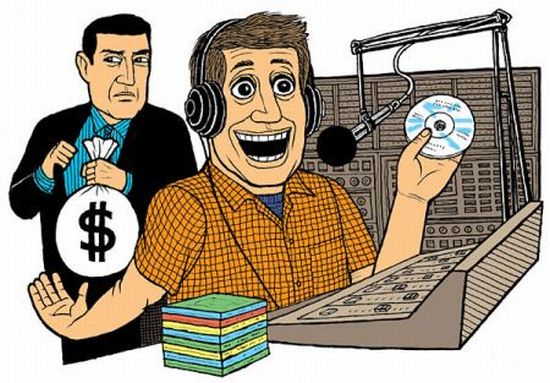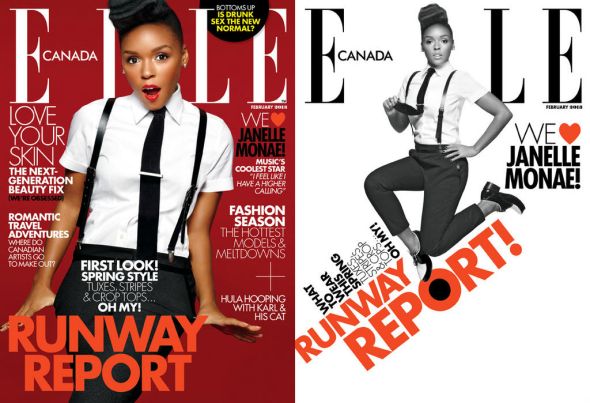Radio personality Fola Afolayan aka 4LaH has officially declared war on the practice of “payola” (paying money for radio airplay) in Nigeria’s music industry. 4LaH, who is also the publisher of the artist focused website dearartise.com, has taken to twitter and also penned the article below calling on all music industry professionals to stop the harmful practice that cripples the careers of artists, especially emerging artists, before they can even taken off.
To be a part of/to follow the conversation, join her on twitter at @4laH with the hashtag #wragainstpayola.
“Payola, in the American music industry, is the illegal practice of payment or other inducement by record companies for the broadcast of recordings on music radio in which the song is presented as being part of the normal day’s broadcast. Under U.S. law, 47 U.S.C. § 317, a radio station can play a specific song in exchange for money, but this must be disclosed on the air as being sponsored airtime, and that play of the song should not be counted as a “regular airplay”.
The term has come to refer to any secret payment made to cast a product in a favorable light (such as obtaining positive reviews).
Some radio stations report spins of the newest and most popular songs to industry publications. The number of times the songs are played can influence the perceived popularity of a song.
The term payola is likely a portmanteau, of the words “pay” and either Pianola (a once-common name for player pianos), or “Victrola”, trade name of the widely-known early phonographs made by RCA Victor. Payola has come to mean the payment of a bribe in commerce and in law to say or do a certain thing against the rules of law, but more specifically a commercial bribe. The FCC defines “payola” as a violation of the sponsorship identification rule that in 2005-06 resulted in tens of millions of dollars in fines to cable corporations in New York.” – Wikipedia
-Uduak Oduok
PAYING MONEY FOR RADIO AIRPLAY – MY THOUGHTS ABOUT IT ALL by 4LAH
For a while now, I have labored over this subject of paying for airplay otherwise known as payola, but I had to take a hard critical look at it from all angles before deciding to write about it.
The Nigerian music industry is growing and there is increased competition for audience and radio airplay. It’s a survival of the fittest, dog eat dog situation here, such that, artistes are forced to bribe or tip their way into getting regular radio airplay.
Payola, in the American music industry, is the illegal practice of payment or other inducement by record companies for the broadcast of recordings on music radio in which the song is presented as being part of the normal day’s broadcast. (Wikipedia)
Payola is as old as the music industry itself, with artistes signed to Major Record Labels or independent artistes with large bank accounts (not necessarily with good songs) dominating the airwaves.
How did we get here? What did we do wrong? These are questions to be answered in other articles, but let’s talk about what obtains now. As an artiste, do you know how your song should get on a radio station’s playlist?
HOW THINGS “SUPPOSEDLY” WORK
I have been privileged to work as a broadcaster in several radio stations in Nigeria, (in fact, I still work in one) and the usual and official way songs make it into the library is this:
(Bearing in mind, the peculiar Naija situation) When a single gets released, the label rep, artiste manager, or artiste himself, submits his press kit which includes, a copy of the promo CD, and a well written bio addressed to the music department/library depending on the organization.
On reception of the package, the CD is auditioned by the librarian, and if it is up to the station’s standard and passes Broadcast guidelines, it is accepted into the library and included on the station’s music schedule. Another way it works is if a song is released online and it goes viral or released via club DJ’s and it becomes a club favorite, the radio station’s music department can get the song and schedule it for airplay on their own.
However, all these are ideal situations. In the real world of Nigerian music promotion, things work very differently!
HOW THINGS REALLY WORK!
OK! Let’s get into the real world now.
Getting a song “added” to a station’s playlist to get a certain number of plays per week involves a rather byzantine process that brings in various parties, called independent promoters. These “promoters” are first paid by the label. It’s important to note that the money the promoters receive isn’t necessarily compensation paid directly to them for getting Presenters to get a song played. Rather, they work more like an intermediary to pass the label’s money to the presenters and librarians.
And in the case of the independent artiste who is financing his own career, he is usually left at the mercy of the radio presenters and librarians who are at liberty to set whatever price they see fit.
Other times, some of these “independent promoters” or “publicists” are contracted by the artistes, who believe they have all the necessary contacts on radio. Unfortunately, more often than not, these “contacts” are non-existent or casual acquaintances with no real connection or even “someone who knows someone, who knows someone”. As a result, the artiste is swindled out of his (or her) “hard-hustled” money, all in the name of “promo”.
MY PROBLEM WITH PAYOLA
Like I said earlier, I have been doing these for a while now (and by doing this, I mean working on radio) I have been exposed to the payola system for a long time, and at some point, been a part of that system. However, it has never really sat down well with me.
I strongly believe it is wrong for any radio presenter/librarian to set himself/herself up as a shylock to demand outrageous financial compensation from an artiste in exchange for airplay. This is an act that is deplorable and it’s unfortunate to see it getting out of hand to the extent that some radio presenters see it as a supplementary means of income. Sad isn’t it?
We have gotten ourselves to the point where radio presenters have been elevated to a celebrity “not to be questioned” status. Some presenters have also cashed in on this undeserved privilege to create an impression that they are “untouchable” and can “make or break” an artiste’s career!
The most painful part of all this for me, in fact the pain is almost physical, is After an artiste has hustled up some good cash to settle these “tax-collecting presenters”, they still have to beg, grovel, pray, and almost visit “babalawo” for their music to get played!
This is the height of heartlessness and evil! You have been paid, why on earth is it difficult for you to do the job you’ve been paid for?
Greed rules this industry such that, presenters will ask for an astronomical sum from an upcoming artiste with a substandard material, knowing that the song won’t make it to radio, but their greed won’t allow them to reject the material. Rather, they will demand for money and won’t play the song.
If you are an artiste and you’re reading this, I’m sure you have your own stories to tell.
There’s a lot to say about this messy business of payola, and this is just the beginning. We need to get out of this present system. It isn’t doing any good and I must say I was quite disappointed with the music segment of the just concluded Nigeria Entertainment Conference organized by the Nigerian Entertainment Today newspaper (NET).
How come, NOBODY on that panel saw it fit to talk about this cankerworm making it increasing difficult for talented emerging artistes to get their deserved airplay?
You should have seen me raising my hands frantically during the question and answer session. Unfortunately, I got passed over by the moderator.
Anyway, this matter has been opened now. We will no longer keep quiet. We will declare war on PAYOLA until we see a positive change. Until upcoming artistes are no longer intimidated and swindled by greedy “promoters” and “tax-collecting” presenters and librarians.
Somehow, some way, things have to change.
This is the beginning.
Founded in 2007, Ladybrille® Magazine is a California based pioneer digital publication demystifying the image of Africans in the west through contemporary African fashion and celebrating the brilliant woman in business and leadership, with an emphasis on the African woman in the diaspora. Our coverage includes stories on capital, access to markets, expertise, hiring and retention, sales, marketing, and promotions.



